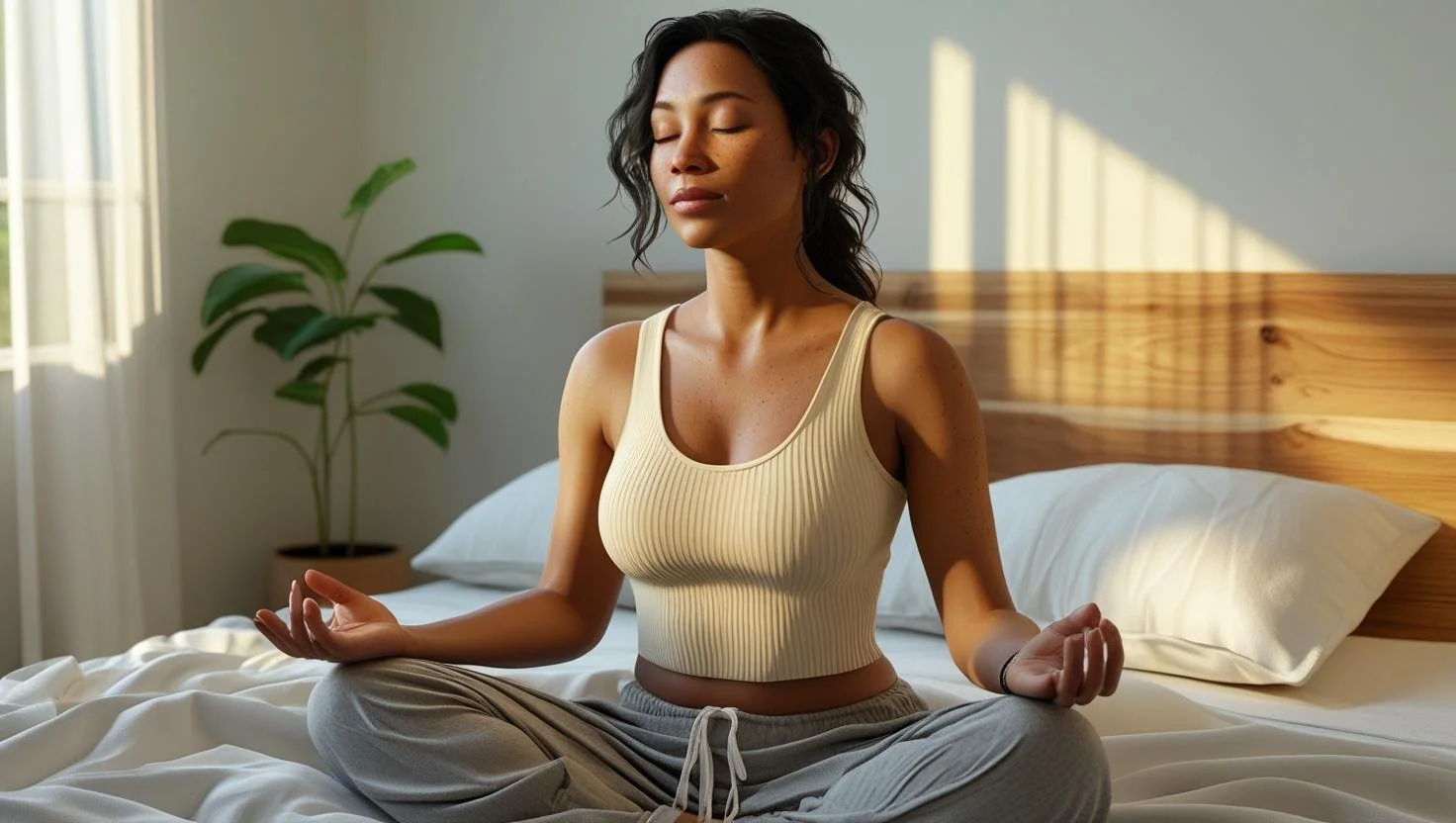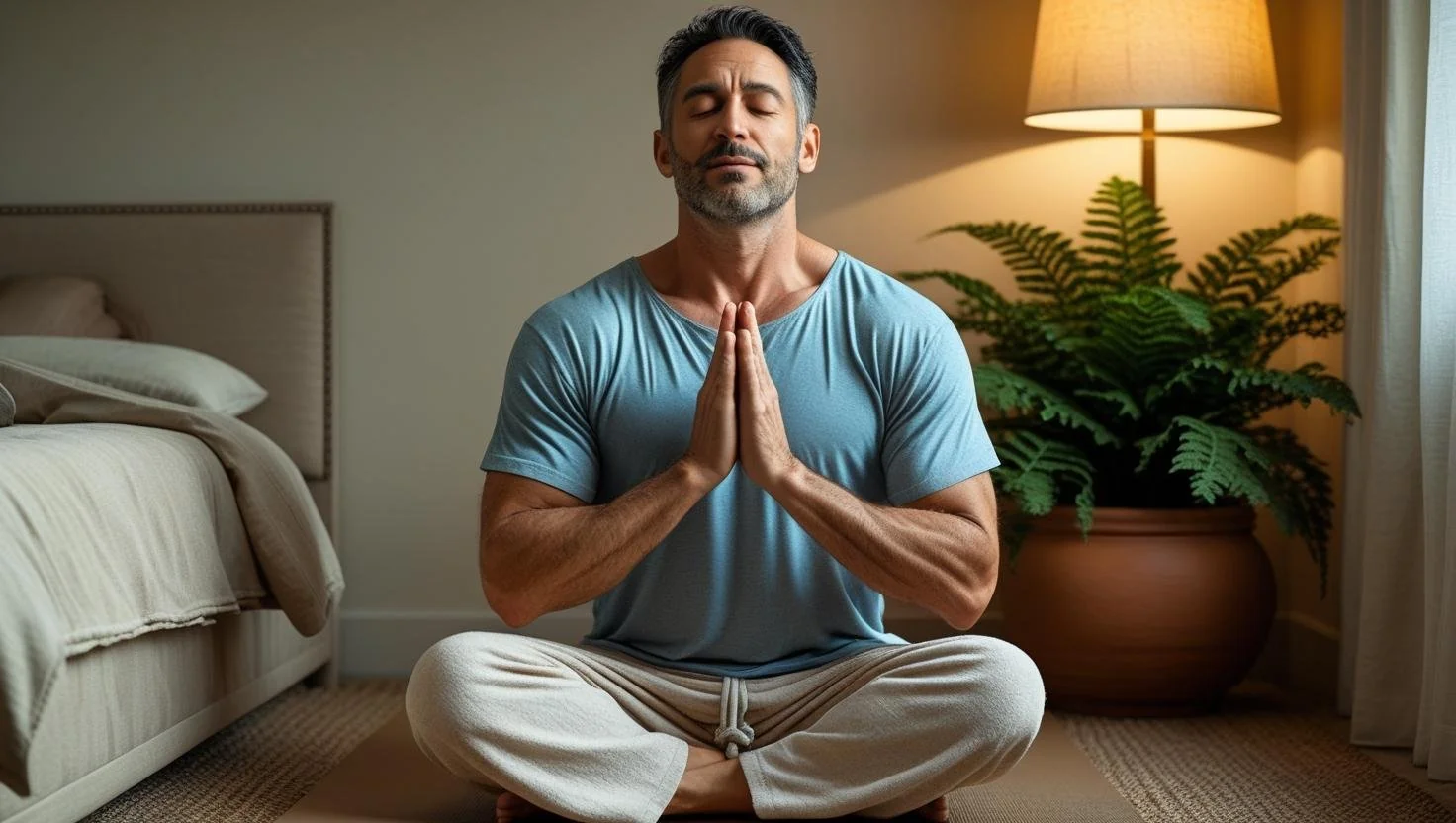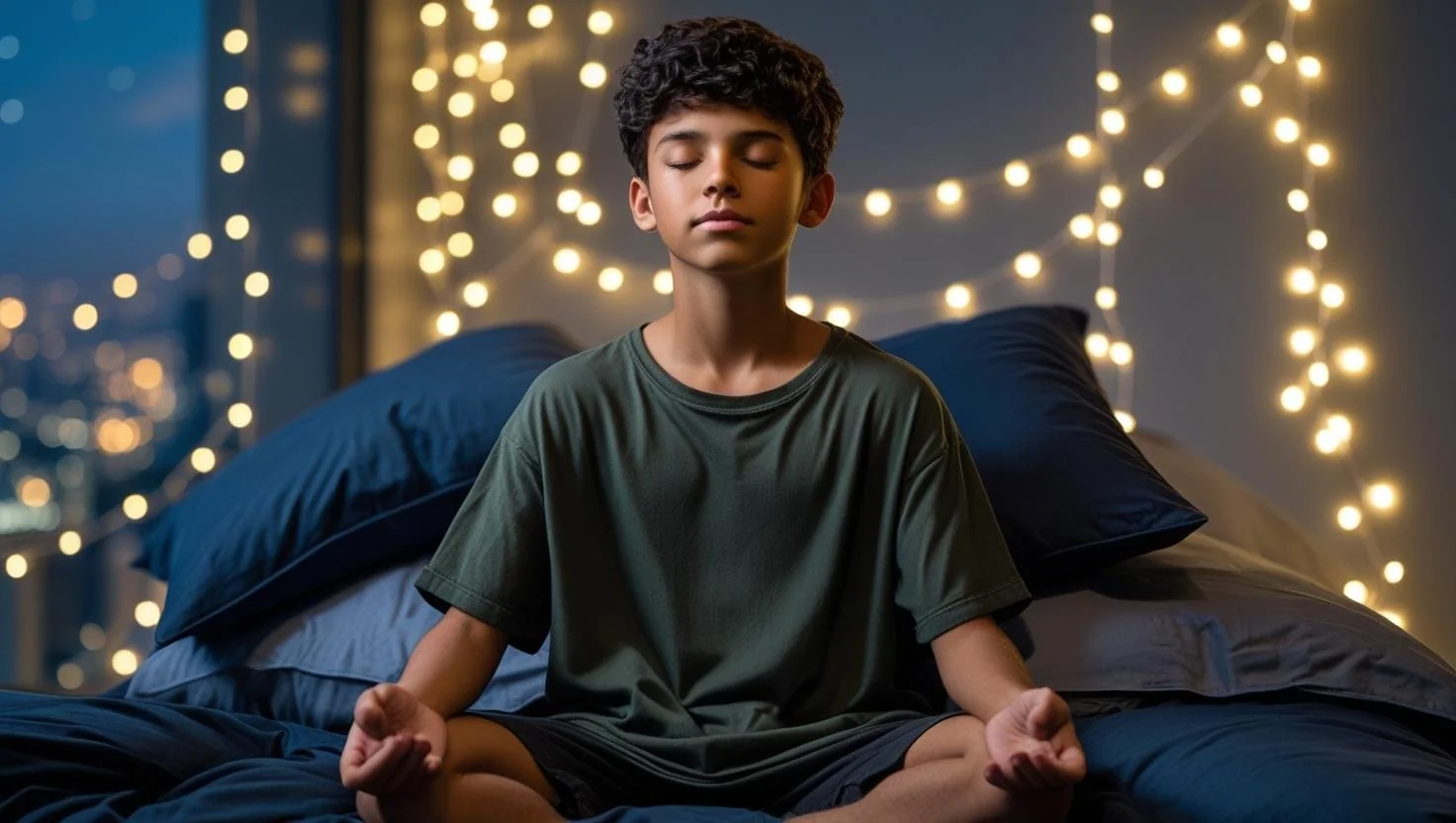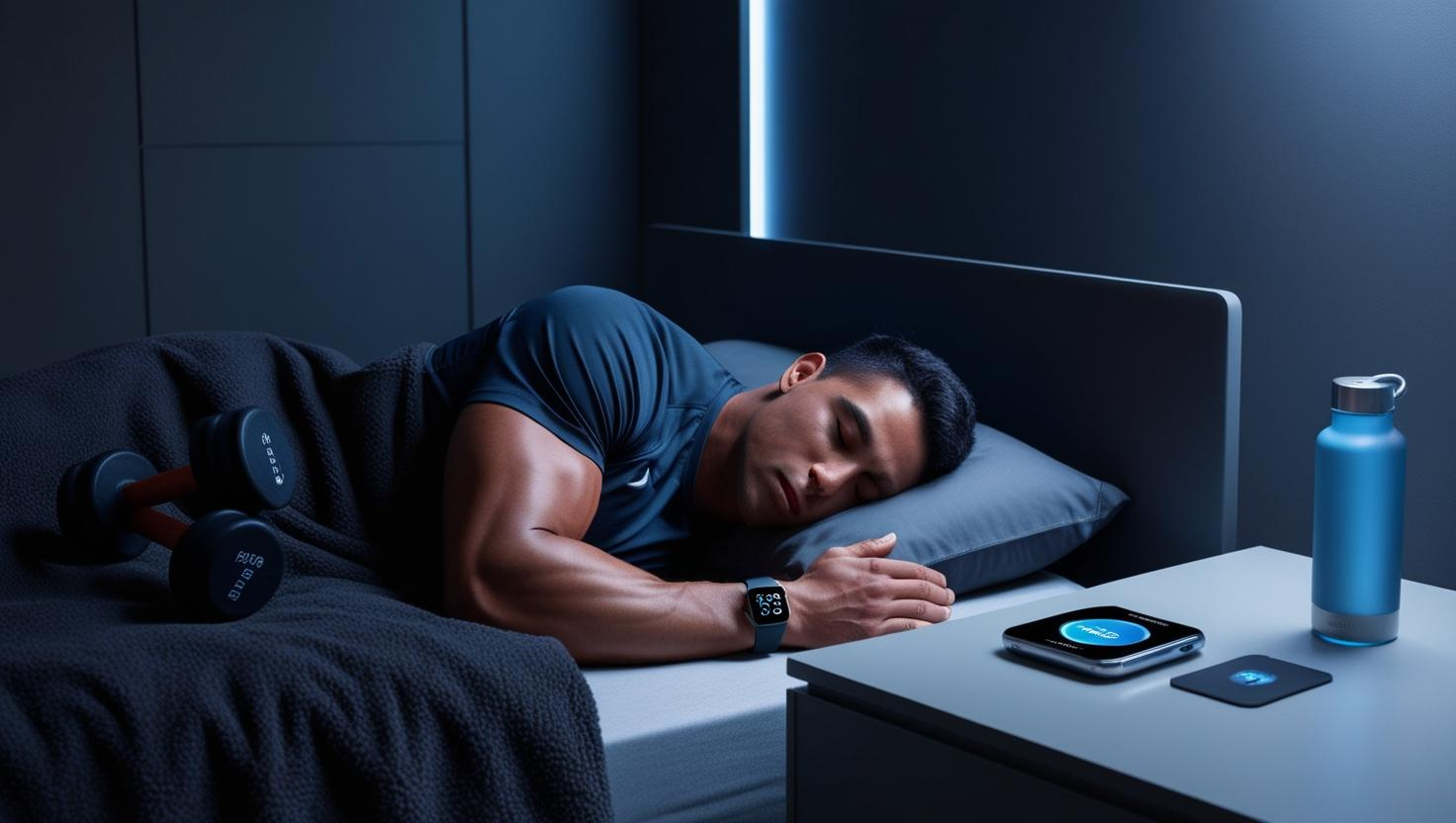How the 4-7-8 Breathing Technique Improves Sleep
The 4-7-8 Breathing Technique is a science-backed, effortless way to fall asleep quickly, manage stress, and quiet a restless mind—no pills or special equipment required.
Key Takeaways
- The 4-7-8 Breathing Technique can help you fall asleep in under five minutes by calming the nervous system.
- This breathing method is natural, drug-free, and easy for anyone to learn.
- Regular practice reduces anxiety, lowers cortisol, and improves sleep quality over time.
- Pairs well with other sleep boosters like aromatherapy, calming sounds, or gentle stretching.
- Works not just at bedtime but any time you need fast relaxation, day or night.
What is the 4-7-8 Breathing Technique?
The 4-7-8 Breathing Technique is a simple, guided breathing exercise rooted in pranayama, an ancient yogic practice for enhancing physical and mental well-being. The technique involves a pattern: inhale for 4 seconds, hold for 7 seconds, and exhale for 8 seconds. By controlling your breath, you signal your nervous system to switch from stress mode to deep relaxation.

First introduced by Dr. Andrew Weil, this technique has gained popularity in wellness circles and is supported by research showing it lowers heart rate and blood pressure while easing anxiety. According to Sleep Foundation, regular use of the 4-7-8 Breathing Technique helps people who struggle with insomnia or nighttime anxiety.
Why the 4-7-8 Breathing Technique Works for Sleep
Ever wish you could just flip a switch and turn off your racing mind at night? The 4-7-8 Breathing Technique acts like a built-in “off switch” by activating your body’s parasympathetic nervous system (the system that helps you relax and restore). As you slow your breath, your heart rate drops, cortisol (the stress hormone) decreases, and your mind naturally begins to let go of tension.

- Slows your heart rate: Promotes a steady, peaceful rhythm that prepares the body for rest.
- Reduces cortisol: Encourages less stress and a calmer mood—key for anyone struggling with anxiety or sleeplessness.
- Relieves tension: Extended exhales signal to the brain that it’s safe to relax and let go.
- Improves oxygen flow: Supports deeper sleep by increasing oxygen circulation in your body and brain.
Medical experts at Medical News Today confirm that this breathing method is especially helpful for those with insomnia or high stress, offering a gentle but effective alternative to sleep aids or medications.
For more on natural sleep solutions, read Say Goodbye to Insomnia: 10 Sleep Secrets for Instant Deep Sleep.
Step-by-Step Guide to 4-7-8 Breathing for Sleep
Ready to try the 4-7-8 Breathing Technique tonight? Here’s how to do it:
- Find a quiet, cozy spot—bed, sofa, or even a yoga mat.
- Sit or lie down with your spine straight and shoulders relaxed.
- Close your eyes and take a few gentle breaths to settle in.
Now, follow these steps:
- Place the tip of your tongue gently behind your upper front teeth.
- Inhale softly through your nose for a count of 4 seconds.
- Hold your breath for 7 seconds (without straining).
- Exhale completely through your mouth for 8 seconds, making a gentle “whoosh” sound.
- Repeat for 4 to 6 cycles or until you feel noticeably calmer and sleepier.

Pro Tip: Try pairing this breathing practice with dim lights, a calming playlist, or a drop of lavender oil on your pillow for even deeper relaxation. If you’re looking for more bedtime rituals, check out Sleep Like a Pro: 10 Proven Hacks for the Deepest Sleep of Your Life.
Best Times to Use the 4-7-8 Breathing Technique
The beauty of the 4-7-8 Breathing Technique is its versatility. While it’s ideal for bedtime, you can use it any time you need instant calm. Try it:
- Right before bed to prepare your mind for deep sleep
- In the middle of the night if you wake up with a restless mind
- After a stressful day when your body needs to decompress
- Before naps to ease into rest quickly
- During anxious moments at work or school for fast relaxation

For more on stopping unwanted night wakings, visit Ultimate Sleep Hack: How to Stop Waking Up at 3 AM Every Night.
Extra Tips to Enhance the 4-7-8 Technique
Maximize your results by combining the 4-7-8 Breathing Technique with other sleep-friendly habits. Some favorites:
- Aromatherapy: Diffuse calming essential oils like lavender or chamomile.
- Soundscapes: Listen to white noise, ocean waves, or gentle rain.
- Dim lighting: Turn off screens and lower lights at least an hour before bed.
- Progressive muscle relaxation: Tense and then relax each muscle group with every exhale.
- Limit blue light: Use night mode on devices or switch them off entirely before bed.
Curious about how scent impacts sleep? Read How Aromatherapy Helps You Sleep Better.
Common Mistakes with 4-7-8 Breathing (And How to Fix Them)
If the 4-7-8 Breathing Technique doesn’t work instantly, don’t get discouraged. Many people make a few simple mistakes at first:
- ❌ Holding the breath too tightly: Keep everything gentle and relaxed.
- ❌ Rushing through the cycle: Let each breath be slow, like ocean waves.
- ❌ Giving up too soon: Practice nightly for at least two weeks before judging the results.
- ❌ Trying it during peak anxiety: If you’re panicky, take a few normal breaths before starting.
Explore more sleep strategies in Genius Sleep Fixes: How to Beat Stress and Sleep Better.
Final Thoughts: Try 4-7-8 Breathing Tonight
The 4-7-8 Breathing Technique stands out as one of the most effortless, science-supported ways to calm your mind, settle your body, and fall asleep faster—often in less than five minutes. It’s drug-free, easy, and requires zero equipment. Why not try it tonight and see how much better you sleep? Sweet dreams await!
FAQ
What is the 4-7-8 Breathing Technique?
The 4-7-8 Breathing Technique is a simple breathing pattern—inhale for 4 seconds, hold for 7, exhale for 8—that calms the nervous system and supports better sleep.
How often should I practice the 4-7-8 Breathing Technique?
For best results, practice the 4-7-8 Breathing Technique every night before bed. You can also use it during stressful moments or whenever you need quick relaxation.
Is the 4-7-8 Breathing Technique safe for everyone?
Yes, it’s generally safe for most people. If you have respiratory conditions or concerns, consult a healthcare provider before starting any new breathing exercises.
Can I use the 4-7-8 Breathing Technique during the day?
Absolutely! The 4-7-8 Breathing Technique is great for calming anxiety or stress any time, not just at bedtime.
Learn more in this complete guide to natural sleep solutions.
Explore the latest in sleep science and technology.
For sleep troubleshooting, see why can’t I sleep? 15 Surprising Reasons and Solutions.
For more on breathing and relaxation, visit deep breathing benefits for stress and sleep.






